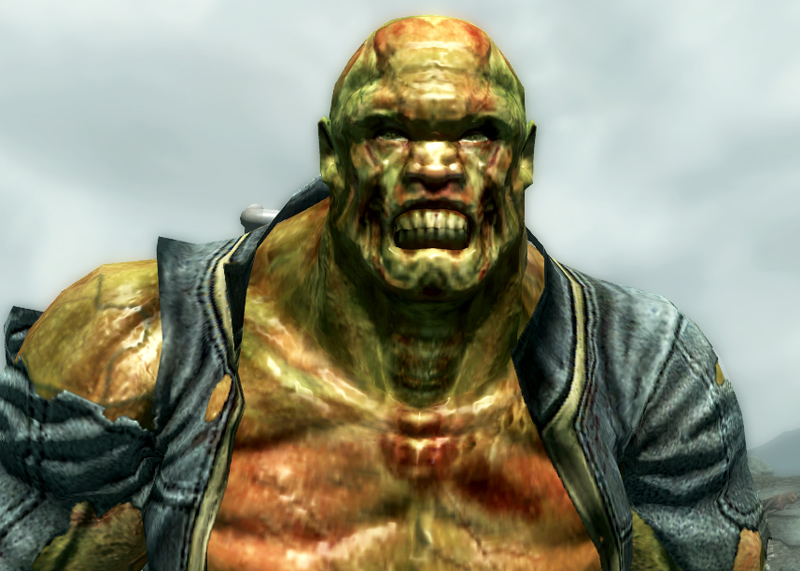I was struck today by a bout of nostalgia. While talking with a friend, the potential destruction of Megatron in Fallout 3 was mentioned. I laughed, proud of how I’d managed to avert the death of its citizens by batting my eyelashes as Mr. Burke. The perks of being a black widow, I guess.
I was immediately overwhelmed with a desire to play that game again, and my mind took me on a trip down the rubble-strewn memory lane in the Capitol Wasteland. I had nearly made up my mind to track down a Steam or second hand copy when I remembered why I’d determined a long time ago that I was never going to play Fallout 3 again.
The endings.
For me, the ending of a game is tantamount to its replayability. I don’t mind if the ending is linear, locked in stone, as long as it’s good.
But if the final moments of a game leave a sour taste in my mouth, then there’s no going back.
On my first, and only, playthrough of Fallout 3, I had had a wonderful time. With my dog and my best friend Fawkes at my side, I wandered the wastes as the patron saint of the downtrodden. I manipulated, lied and shot my way through the hordes of unfriendly residents, until at last I reunited with father dearest.
And that’s when everything stopped making sense and I’m pretty sure I developed an ulcer from narrative dissonance.
Perhaps it wouldn’t have been so bad, had I not been travelling with Fawkes. Dear, sweet, gentlemanly Fawkes, who always had a word of insight and his guns at the ready. And who also happened to be completely immune to radiation poisoning.

As if that weren’t enough, I also made a point of carrying a lifetime’s supply of RadAway in my inventory at all times, and a radiation suit that also rendered me completely immune to that form of damage as well.
So when the game informed me that I had to go into an irradiated chamber to enter a three number code and save the Wastes, I was thrilled. My roleplaying experience was about to be rewarded, I thought. I turned to Fawkes. I asked my dear friend to enter the chamber on my behalf.
“That is not my burden to bear, Vault Dweller.”
The words still echo through my mind as I write this, and I’m pretty cure my lip just curled in the exact same snarl of disbelief.
Why the hell not, Fawkes? I thought. I saved you. I gave you a chance to prove yourself to the Wastes. And this is how you repay me?
Fine, I thought. Fine.
I donned my radiation suit. I dosed up on RadAway. I entered the chamber and I saved the Wastes and I died against all logic.
I watched the epilogue play out in disbelief.
I threw my controller across the room.
I swore never to touch that game again.
Fallout 3 had established a set of guiding rules for its universe. I had followed them to the letter, using the tools it gave me. But suddenly, at the end of what had been one of the best gaming experiences of my life, it railroaded me into martyrdom, despite providing me with the tools necessary to escape it. And that, ladies, gentlemen and those of you who have yet to make up your minds, is bad writing. Plain and simple.
If the writers wanted me to die in that chamber so very desperately, I should not have been able to see a way around it. Let alone one that was large, green, and sentient. I should have been able to evaluate the options, sigh, and go gamely to my doom like the hero I had been to that point.
Another, more recent example of this huge narrative oversight can be found in the endings of Mass Effect 3, where I found myself placed in almost the exact same situation. I could see so many other options than the ones presented to me – and I’m not even going get into the backwards logic of the Catalyst.
Why couldn’t we defeat the Reapers using the massive military force I had assembled? They weren’t invincible. My Shepard had personally taken down five
across the course of the series. Do we pretend that the Miracle at Palaven, in which the Turians took out dozens of Reapers by planting bombs inside them, never happened? Or that focusing fire was completely ineffectual?
It’s not really a case of tripping over the author’s plotholes, so much as trying not to be sucked into the great sucking quicksand pit of narrative dissonance. I can’t help but wonder whether the writers thought they’d backed themselves into a corner, that they had to end the games and were somewhat at a loss of how to do so. But if you’re telling me that not a single QA tester noticed the plotholes, I am inclined to doubt you. Heavily.
I’m not saying that there always has to be a happy ending to every game. I’m just saying that the endings should make sense.
They should fit with the tone of the narrative and follow the rules of the universe, and they definitely should not have gamers frothing at the mouth in frustration.
I would rather have risked everything in an all-out assault against the Reapers, watched an epic cutscene of the Galaxy’s struggle to survive and see us stand or fail on our own merits, than have to blindly follow the whims of a sparkly AI God-Child whose very existence was a paradox.
Writers, please do your games the credit they deserve. If you want to kill our characters, do so. But don’t cheapen their sacrifice with lazy endings.






Published: Aug 2, 2013 01:25 am